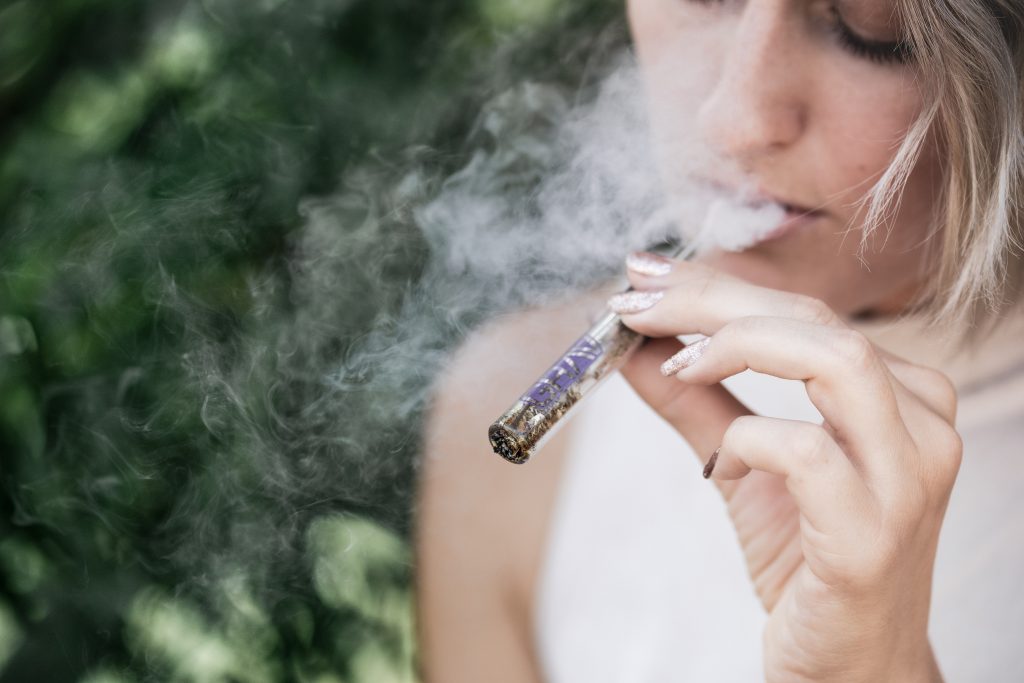
How the cannabis industry markets to COVID mothers
Motherhood is not linear. Every mother knows that every family’s journey is different. Compared to ten years ago, women now have more resources to find their way around the world of motherhood for the first time. Local support groups and mom-and-me yoga classes are just a few things mothers say not only did miracles but also gave them the encouragement they need. However, for the women who gave birth during the Covid-19 pandemic, their journey as motherhood began differently.
Mothers who gave birth during Covid-19 have additional trauma
According to clinical research, women who gave birth during the global health pandemic from Covid-19 not only had greater dissatisfaction with childbirth, they all reported an increased risk of developing postpartum depression (PPD). With the mandatory isolation and constant fear of the virus, new mothers have endured isolation and distancing more than ever. Mothers who already had children had to immerse themselves in the new reality of virtual learning, work remotely full-time and cope with everyday life.
“One of the greatest resources for expectant mothers is the availability of support and with Covid-19 those options are limited,” says Dr. Glowiak from Choosing Therapy treating young mothers during the pandemic. “Newborn mothers were reluctant to bring their newborns into public for fear of illness. Children are much more likely to get sick, especially since there is no vaccination for newborns. The combination of this reality with PPD further compounds to exacerbate the symptoms. “
Numerous women have reported stories of giving birth alone as hospitals have banned an escort for fear of the virus. This created a nationwide women’s health emergency that prompted young mothers to seek other much-needed self-sufficiency options.
CBD was the cornerstone of mental health support for young mothers during the pandemic
Karen Herrera, the owner of Palm Organix and mother of four, sees the changes the cannabis industry is making in the area of motherhood. “I feel like the CBD industry is marketing to mothers in two ways. One is at the beauty level: there are a number of new skin care products. And the second is women’s health problems: such as stress, trauma, insomnia, menstruation / menopause. ”
The latest CBD / THC research reports beneficial effects on reducing anxiety and depression from medically tested doses. The majority of mothers who use cannabis to treat postpartum depression (PTSD) report that it is a better form of medication than the prescription drugs commonly used today such as Zoloft and Lexapro.
Although mothers can now use cannabis, there is still a lot to be done
The legalization of cannabis is advancing in the United States, currently in up to 19 states. However, despite ongoing reports detailing the positive benefits of CBD and THC, cannabis is still not FDA approved to help with health problems. And while more research is being discovered, the stigma surrounding cannabis has still not faded.
“The biggest problem with mothers is stigma,” says Dr. Glowiak. “Many mothers, especially those who have never used or thought of it, may believe that they are jeopardizing their integrity at a monumental moment in their lives. But I see both CBD and THC normalize in the future when treating PPD. “
With the huge void and lack of support mothers experienced, the pandemic inadvertently opened a new door and potential market for the cannabis industry. But there is still more to be done. Because of this, advocates must continue to raise their voices and crack down on the stigma to make the cannabis industry more accessible to the people who need it most.

Post a comment: